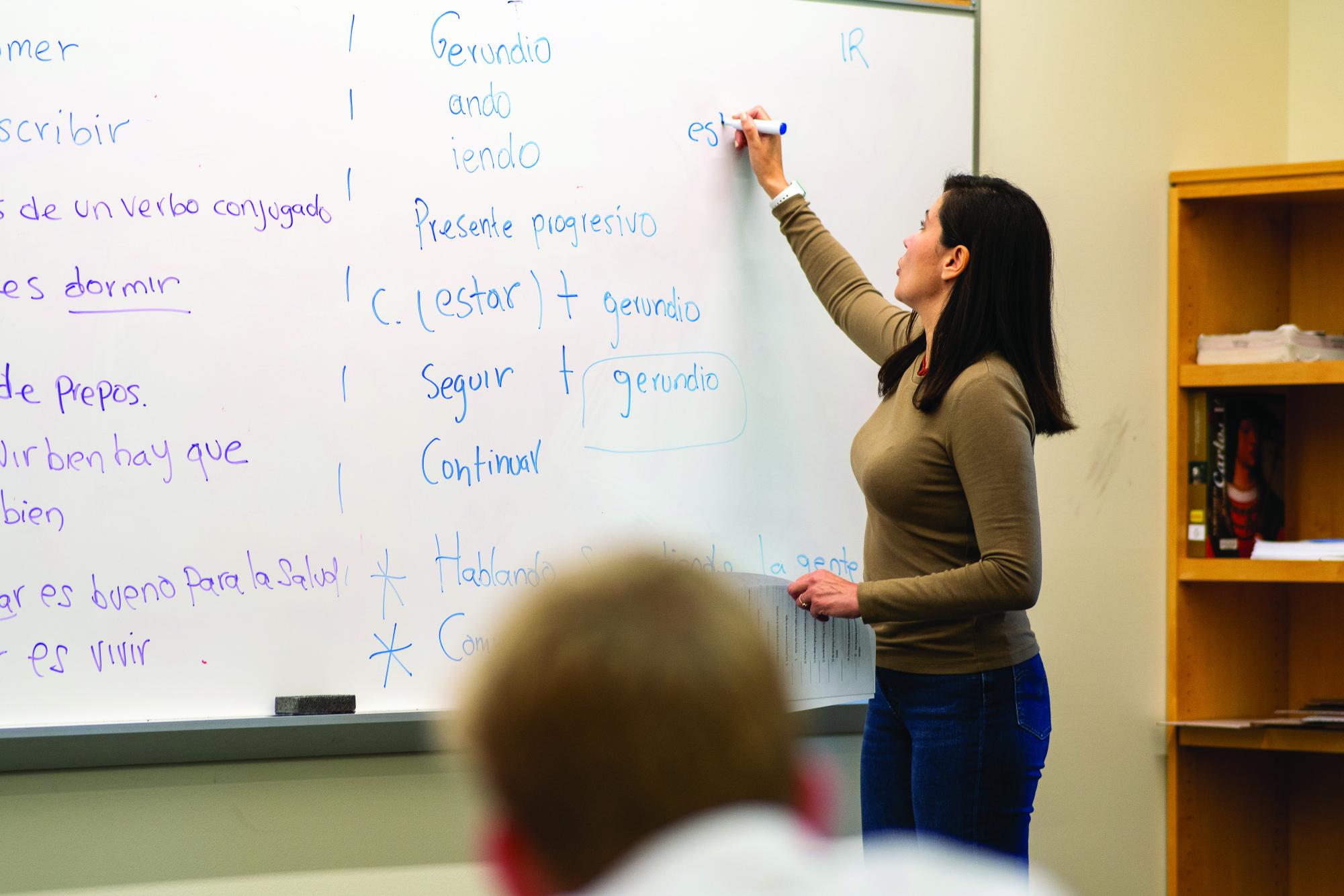Faced with a budget deficit nearing $75 million, West Virginia University made a list of sweeping changes to its curriculum. Among them is a proposal to eliminate the foreign language department.
For decades, schools have promoted the importance of having a language department—to encourage students to study other cultures, to give them an advantage in a competitive job market or simply to allow them to tackle a challenging curriculum.
According to the Wall Street Journal, as the university’s enrollment has declined, spending has not, forcing institutions to downsize or eliminate their foreign language curriculum entirely.
As a result, colleges have been forced to adopt smaller class sizes, leading to over 650 college language programs being removed over a prior three-year period, according to the Modern Language Association.
Beginning in the fifth grade, Marksmen choose from Spanish, Chinese or Latin. Gene and Alice Oltrogge Master Teaching Chair and Chinese instructor Janet Lin said the three languages offered at the school are both practical and effective.
“We don’t have that large of a student body, so I think we offer three very different languages that can represent that,” Lin said.
According to Language Department Chair Zach Erwin ‘96, the language options have changed over time.
“When I was a student at St. Mark’s in [the] 1990s, we still had French, German and Japanese classes,” Erwin said. “But gradually, interest in those languages waned… whereas interest in Spanish and Chinese grew. Meanwhile, our Latin enrollments have remained pretty steady for quite a long time.”
In spite of the few offerings, Lin believes that the language department brings diverse cultural events to all students beyond the language they’re studying. Events like the Lunar New Year Celebration and International Week allow students to experience cultures that they might not be exposed to otherwise.
For Zach Gilstrap ‘18, who studied Chinese at St. Mark’s for six years and continued his language study at Yale, one of the most memorable aspects of his time learning Chinese came through a study-abroad program the summer before his freshman year of high school when he and his classmates traveled to China for three weeks.
“That was my first time outside of the country,” Gilstrap said. “It was a huge culture shock just being in a different country.”
Staying in Beijing and Xi’an, Gilstrap saw Chinese culture from a different perspective, learning day-to-day cultural differences while interacting with his host family and taking classes at a local middle school.
Erwin was also able to travel abroad as a student, going to Spain on the summer before his senior year.
“When I was in graduate school, I lived in Madrid for a semester and worked for the Duke study abroad program there,” Erwin said. “I’ve also spent several summers in Galicia in northwestern Spain. Most recently, I delivered a presentation at the annual conference of the American Association of Teachers of Spanish and Portuguese, which was held in Salamanca, Spain, in July.”
Blake Daugherty ‘18, also a six-year Chinese student at 10600, went on to major in Chinese at Dartmouth and has been successful at pursuing real-world business opportunities as a result of his studies.
“Chinese directly helped me get internships while in college, one at the U.S. Department of Commerce Office of China and one at a Shanghai-based investment bank,” said Daugherty. “Both required me to spend time networking within these respective communities until I found a place willing to have me for a term.”
To Daugherty, studying Chinese was never solely about the professional advantages that it provided.
“A sustainable motive for learning a language should primarily be out of a desire for your own benefit,” Daugherty said. “Languages should be something that are fun to learn for the sake of learning.”
Gilstrap thinks that people who don’t have the opportunity to study another language at all are missing out on the chance to learn how to better interact with other people from around the world.
Lin worries West Virginia’s proposal may influence other schools to follow suit, leaving even more students unable to continue language studies.
“It’s a very bad moment,” Lin said. “It is not just the students who want to learn a second language who are at a disadvantage. I think the whole school is limited in what they can be exposed to in culture and language.”








